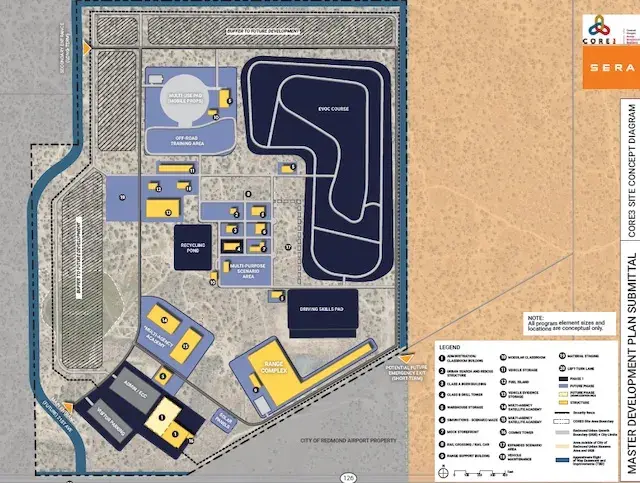Oregon Legislative Update - Week 13
- NW Policy Advocates
- Apr 25, 2023
- 4 min read
2023 Session

Hard to believe, but we're halfway through this Legislative session, which must adjourn by Sunday, June 25. Oregon's Legislature started with over 3,500 bills, yet only 19 have been signed into law. And while close to 1,700 missed the deadline for consideration and are now officially "dead," hundreds more have been sent to the Ways & Means Committee, or are waiting for consideration on the Senate and House floors in the coming days.

Committee meetings have been canceled for Monday and Tuesday, giving the House and Senate time to catch up with bills passed out of committee. Legislators have been told to prepare for 12-hour floor sessions.
Committees will start considering bills from the opposing chamber on Wednesday. Meanwhile, the Ways and Means Committee will continue their series of four "roadshows," designed to hear from Oregonians on budget priorities.
Stay tuned for May 17 when state economists deliver their revenue forecast, and legislators learn how much money budget writers will have to spend for the 2023-25 biennium. Members have requested billions more in individual fiscal asks than is likely to be available within budget constraints, a situation designed to generate frustration as we speed towards the end of the legislative game.
Will 2023's "Collegiality" Come to an End?

Legislation implementing much of the now court-delayed gun measure, BM 114, advanced on a close 3-2 vote this past week in the Senate Judiciary Committee (SB 348).
The bill, which includes many of the provisions that voters in just 5 of 36 counties helped narrowly pass last year, also restricts future court challenges to the Marion County court system.
For more details, check out this article from the Capitol Insider.
Other bills certain to bring out partisan divisions include HB 2002, legislation focused on abortion access and gender issues.
Will these issues cause the Capitol to "implode?" Here's one take on the issue.
Semiconductor Industry Consortium

The second part of a multi-million state response to the $52 billion federal "CHIPS" Act began its fast-track journey through the Oregon Capitol this week. HB 3254's provisions are likely to include the creation of a permanent "industry consortium;" workforce development initiatives at the university, community college and local workforce board levels; and possibly Research and Development Tax Credits, industrial incentives, etc.
The first part of the Semiconductor package, SB4, has already been passed and signed into law, ahead of this past week's visit by U.S. Commerce Secretary Gina Raimondo.
Behavioral & Mental Health Workforce Shortage
Oregon's public health system, non-profits, local mental health clinics and substance abuse treatment centers are suffering from a chronic and persistent workforce shortage.
Legislation passed in June 2021, HB 2379, funneled more than $140 million toward developing solutions to the crisis, but little of the funding has reached the streets or begun training professionals. In 2022, the Legislature passed a stopgap measure, HB 4004, which pumped millions of dollars into the system, but whose dollars run out on July 1.
This year, legislators have moved a variety of bills out of policy committees and towards Ways and Means, awaiting final funding decisions. Bills pending these budget decisions include:
HB 2513 – Local coordination of behavioral health resource networks and alcohol and drug prevention and treatment services
HB 2500 – Worker mileage reimbursement for remote locations
HB 2544 – $ for OHA to increase SUD and mental health licensed residential facilities
HB 2457 – DHS reimburse direct support professionals' family and medical leave insurance benefits
Drought Relief and Water Security Package

Chair Helm and Vice Chair Owens have developed a "Bipartisan Drought Relief and Water Security package of near-term relief and mid- to long-term actions" that targets root issues related to drought. It includes actions and investments "aimed at producing “triple bottom line benefits” for a sustainable water future for families, farms and fish."
The package components have been organized into seven main categories:
Planning, Coordination, and Capacity
Data and Analysis
Water for Families: Drinking Water Security
Water for Farms: Agricultural Resilience and Food Security
Water for Fish: Instream Priorities and Watershed Health
Water Project Investments, and
Outreach and Engagement.
The total package investments total around $250 million dollars.
Status: HB 3124 "needs more work," according to the Co-Chairs. To keep it alive after the deadline, it has been moved out of the House Agriculture, Land Use, Natural Resources and Water Committee to the House Rules Committee for further consideration.

"Hybrid Hearing" System Working Well
Communication tools developed during COVID are helping connect Oregonians from the far reaches of the state with their Legislators.
Weeks into the 2023 Session, Committees are becoming adept at tapping the system to allow for testimony from witnesses in rural Oregon, those facing challenging winter conditions, people unable to visit the Capitol because of disabilities, and experts from national organizations.
The challenge has been the sheer number of witnesses on many bills, and the shorter (90 versus 120-minute) committee hearings that frequently limit witnesses to as little as 2 minutes of oral testimony. If you sign up to testify, be prepared to adapt to this abbreviated timeframe.
YOU are the best lobbyist!
You can help us advocate for your issues by:

Reviewing your bill tracking report each week (new bills are added regularly)
Making time to reach out to/meet with legislators
Preparing letters or testimony to submit on priority bills
Working to secure support from other organizations for your priorities
Find your legislator and their contact information



Comments